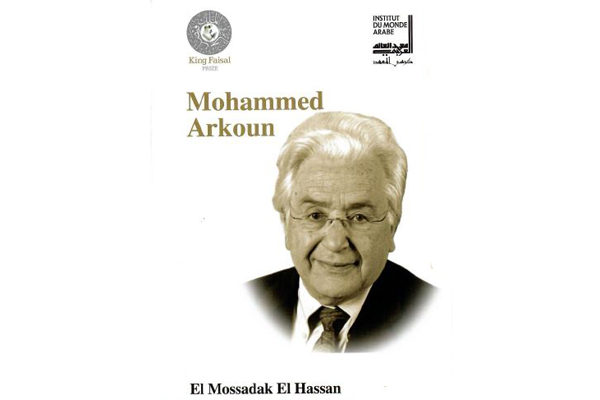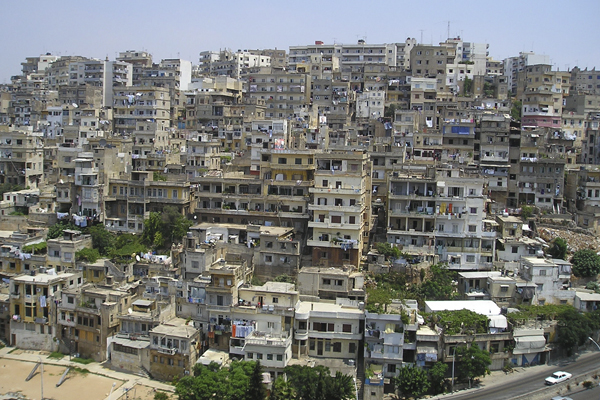
Author: Barah Mikail
Ahmad Farjani and the government of Fezzan

Since the fall of former leader Moammar Gaddafi in 2011, the South of Libya has been marked with instability and insecurity. Chadian, Soudanese, and Libyan opposition groups were able to take opportunity of this situation.
The current state of play reminds us of the dire conditions that most Libyan citizens face on a day-to-day basis. Since 2011, many governments have tried to bring back security and stability to the South, without success. But, in early 2019, the eastern-based Libyan National Army (LNA), led by Field Marshall Khalifa Haftar, was able to take control of the region. Nevertheless, the LNA failed into putting a limit to war, kidnappings and abuses that were exerted by some armed groups on citizens that live around Sebha and other regions of the South.
Security problems were also part of the reasons why some tribal leaders and notables asked for the constitution of a local body under the name of “The Government of the Fezzan Region”. They aimed at allowing this ruling institution to fulfill the peoples’ basic needs and to address their main demands.
To better understand this situation, we interviewed Ahmad al-Farjani, founder of the movement for a “Government of the Fezzan Region”.
Ahmad Farjani, could you first explain to us what the goals of this new government that you plan to announce are?
Our goals are clear: we want to secure the whole territory of the Fezzan region by freeing it from any of the Tubu groups that work in alliance with the Islamic State. Let me remind you here that this threatening situation has only been rendered possible after the LNA entered the region and led a war on both Chadian Tubus and Chadian opposition groups that had settled in the Fezzan region. Besides, we also want to give back to the citizens of the South all their civil, economic, social, and political rights. We will work on it, even if the price for that has to be the closure of strategic points such as those used for importing goods and those that connect the Fezzan to the eastern and the western parts of the country. We are not threatening anybody, especially since we do believe that we all form part of a one and only Libyan population. But we believe that the Fezzan region can provide a solution for Libya. This is especially true now that we can see the number of people from the East and the West that have paid the price for the ongoing situation. Many people have promoted policies and strategies that were focused on their political personal gains and on taking power with the use of armed force.
Are there any local or foreign actors that agree with your project for a “Government of the Fezzan”?
Sure, people of the South in the region expect the Fezzan region to find a solution to both its problems and the problems of Libya as a whole. We have no contacts with people based outside of Libya, but we are in touch with important people from outside of the Fezzan region.
Are you also defending this idea of a southern government due to the weakness of former governments?
Of course. Weaknesses, blunders, power struggles, the incapacity of the eastern and the western government alike to address people’s needs and demands, as well as the dysfunctions in terms of providing services and guaranteeing security, all motivated the people of the Fezzan to think of alternatives such as the one that we are bringing today. People are acting out of pure dignity, and, by the way, this is the reason why they have given this initiative the name of “The Proud Fezzan Government”.
Some people believe that this government will fail, especially since the security and military situation are already taken care of by an eastern-affiliated body.
By no means do we stand with or against any of the conflicting parties, especially if those ones do fulfill their mission, starting with the taking care of the security situation. That said, it is only after the LNA came in the South that the Islamic State became able to benefit from an alliance with the Tubus and to spread to the region. Before that, there was no presence for the Islamic State in the South. Add to that the “eastern-affiliated structure” that you are referring to clearly has no existence on the ground; we are talking here about a label only, a name, with no real consistency. It is true that the LNA has reached out to the South and has achieved there the mission that it had in mind, but directly after that it withdrew due to circumstances that are hard to understand, while the people of the Fezzan region again faced killings and displacements.
Where do elites and tribes stand with regards to your project? Have you been in touch with any of their representatives?
We do know that many members of the tribes and elites want such a project to take ground. But we haven’t gotten in touch with them yet. Our project for a new government is very recent, while we are still in the process of creating committees that will make proposals to address the needs of all the people of the Fezzan region. We also hope that the creation of a new government will be received positively by the people, but what we hear on this matter is extremely positive.
Can you be more specific and give us examples of some of the founding principles of your project?
Sure. First of all, we believe that we have the right to claim a government for the Fezzan region that will guarantee our security while preserving our rights.
Two: the day warring parties from the East and the West agree with each other, we will stand with both of them, the way we will stand with Libya as a whole. We are not separatists, but we do want to obtain our rights, far from the ongoing conflict in the north.
Our slogan is clear: as I mentioned before, we are with the idea of setting down a “Proud Fezzan Government”.
Lastly, what do you think of the fact that former Prime Minister Ali Zeidan has joined your movement?
This is simply not true. Our movement is by no means in touch with politicians such as Ali Zeidan.
Interview conducted by Mohammed Sreit
Mohammed Arkoun and the Construction of Islamic Thought
Gulf Countries: An Avoidable War – By B. Mikail (in French)
The New Divisions of the Libyan House of Representatives (in Arabic)
Libya, Militias, Divisions, and the Way Forward (with CIHRS)

Eight years after the Arab uprisings, Libya shows no signs of recovering from the plethora of problems in which it became entangled. With the official fall of Muammar Gaddafi in October 2011, despite many difficulties, the country could have still headed towards a better future. But disagreements, rivalries, and struggles for power took over, as exemplified by the early April 2019 battle for Tripoli. Currently, Libya is experiencing one of the worst crises in its history, ruled by insecurity, underdevelopment, humanitarian crises, trafficking of all sorts (human, drugs, weapons, and goods), political and sociopolitical fragmentation, and the absence of a strong government.
The dire situation in Libya is defined by another serious reality: the rule of militias. In the field of security, paramilitary actors are the backbone of the country; but because they are not organized as a part of a regular armythey have become one of the main sources of disorder and insecurity in Libya. With recent events, militias from the west did indeed gather under one umbrella with the aim of protecting Tripoli; however, this move does not aim to safeguard governmental institutions and the Tripoli-based Government of National Accord (GNA). In reality, militias are acting first and foremost in their own interests.
Is there an efficient way to compel militias to disarm and/or put themselves under the rule of an official governmental army? In reality, no. Strategies and efforts to disarm militias or circumscribe their role have all failed up to now. Militias and their leaders are fully aware that the political vacuum and prevailing uncertainties in Libya give them further power and influence; consequently, the end of their rule is not yet foreseeable.
This does not mean that the way forward to achieving stabilization – including through the disarmament of militias – would be out of reach; there is no doubt that stabilization will be achieved one day, and militias disarmed by then. Yet to achieve that, Libya’s regional, national and local specificities must be well-understood, and the way forward to solving the country’s core problems must be defined accurately.
This article will look at the strategies required to address Libya’s most pressing issues and challenges. After placing Libya in its regional context, it will discuss the main dynamics prevailing from a security point of view. The last part will be dedicated to the points that need to be quickly and seriously addressed if Libya is to move forward. (Continue reading)
Tripoli: Crumbling or building? By M. Sreit (in Arabic)
Menacer: “The Algerian regime is not capable of reforming itself” (El Salto)

“The political crisis opened in Algeria as a result of the intention of President Abdelaziz Bouteflika to stand for re-election has no sign of ending, nor does his resignation and the promise of a supervised transition have placated the street.” Lyes Menacer (Algiers, 1979), political consultant and journalist of the newspaper Liberté, one of the main independent media of the country, has spoken by phone with El Salto to share his analysis on the situation and what are the possible future scenarios ”
An interview by Ricard González that you can read in Spanish here:
https://www.elsaltodiario.com/argelia/lyes-menacer-regimen-argelino-incapaz-reforma-solo-sobrevivir







